Featured
Neil Shorthouse on inter-resort collaboration, training locals in Maldives fast-growing tourism industry

When Neil Shorthouse first arrived in the Maldives in early 2008 as the Cluster Director of Human Resources at Anantara Resorts Maldives, the Maldives tourism industry was an altogether different story. New investments, tightly controlled and directed by the government, were made mostly by a handful of seasoned local and foreign hoteliers. Growth was impressive and return on investment was unmatched. But for travellers, accommodation options were limited to luxury resorts that cost tens of thousands of dollars for a night’s stay.
Fast forward 10 years, and the industry has inevitably evolved. A plethora of new properties has come into play, with the backing of a combination of local and international entrepreneurs and seasoned hoteliers. Dozens have forayed into new and untapped segments of the market, greatly expanding the scope of an industry that was previously exclusive to luxury tourism. Tourist arrivals have crossed the one million milestone and is on course to reach an ambitious target of 1.5 million.
This rapid expansion in a short period of time poses several challenges, especially in getting enough skilled individuals to fill up managerial positions. Resorts are forced to bring in professionals from abroad to an industry already dominated by expatriates or promote individuals without giving them proper training and guidance.
“Some people will pick up very quickly and are very good at that role. But some people are put there because there is no one else to do it and they don’t necessarily have the skill set to do their job. This means that if they go to another property, they may actually fail,” Neil, whose 20-year long career in hospitality involves working with a variety of top luxury brands such as Regent Seven Seas, The World, Soneva, Six Senses, Anantara Resorts and Cheval Blanc Randheli by LVMH, says, in an interview with Maldives Insider.

Neil poses for a photo with the participants of a training programme he conducted at the Hulhule Island Hotel (HIH) in Maldives. PHOTO/ HIH
Smaller resorts have to bear the brunt of the current deficit in getting skilled Maldivians for senior positions, as international hotel chains have the luxury of moving employees within its hotel portfolio. For new resorts, especially those owned and operated by up and coming local hoteliers, apprenticeship programmes run by industry leaders could be the answer.
Apprenticeship programmes for the hospitality industry are growing in popularity in countries such as the UK. In the Maldives, Four Seasons and Minor Hotels have been running their own apprenticeship programmes for years, and leading local resort operators such as Universal Resorts are formally getting into the game with their own apprenticeship and internship programmes for aspiring locals. These programmes have already enabled several young Maldivians to enter into the industry; starting at the very bottom and climbing up the ladder to achieve their goals.
“It’s all about getting to understand that when you start from the bottom and move up the ladder in the right pace, you appreciate it far more and you have a better understanding of the operation. So, if you want to be a chef, you start as a commis or in any other similar position. This way, they understand what it’s like to work at the very bottom and to move their way up,” Neil explains.
“What a great place it is to study hospitality when you have over a 100 resorts to get your work experience from. Almost every international brand is here. The experience students will get here in the Maldives is phenomenal.”

Neil conducts a training programme.
However, apprenticeship programmes are not enough to bridge the gap that currently exists, especially in light of the number of new resorts opening up across the Maldives. With dozens more expected to come into market in the next few years, Neil believes that resorts should collaborate with established local educational institutes such as the Faculty of Tourism and Hospitality Studies of The Maldives National University to offer courses as well as internship opportunities.
This collaboration needs to extend to inter-resort cooperation as well. Industry stakeholders should come together, and share information and ideas in an attempt to find ways to better adapt to the fast-changing trends.
“When I first came to the Maldives 10 years ago, it was very collective. Everyone spoke to each other. Everyone was involved and willing to assist. Nobody would say we can’t do this, we can’t do that. We had that trust and respect for each other,” Neil, who has worked in countries such as the UAE, Thailand, Maldives, Sri Lanka, Seychelles and the US, says.
“Nowadays it has become very secular in the sense that only some properties will talk to certain properties, or if there is a request for information, people don’t want to provide information to anymore. With the market becoming so challenging, it’s almost silly that no one speaks to each other and shares ideas. It maybe because it’s growing so big, that there are so many resorts, that it’s becoming more difficult to coordinate. But we need to have the inter-resort collaboration we used to have.”
Despite the challenges, Neil, who now runs his own hospitality consultancy firm Shorthouse Hospitality International (SHI), believes that training locals to take over managerial roles is the only way forward. Having worked with some “phenomenal” Maldivians who have gone onto become General Managers and HR Managers at reputed resorts across the country, he says that Maldivians can do every single task just as well as their colleagues from abroad if given the right skill set and opportunities.
“If you go to Thailand or any other destination, you can see a lot of locals in senior management positions. So, even from the guest perspective, having more locals in your workforce, especially in senior positions, is key. They are coming to the Maldives and they want to see locals. I think guests get more excited when they see that the resident manager is a Maldivian, or when they see a Maldivian chef or a Maldivian GM,” he explains.
“Those of us who are foreigners working here, are here as a guest. We have been given a work permit to work. I try to make sure that there is always a local capable of taking over my position. In my view, it’s all about giving back. It’s all about giving the skill set that they may or may not already have so as to ensure that they succeed.”

Neil (R-5) attends a networking session organised by the Society for Human Resource Management (SHRM) in London. PHOTO/ SHRM
The expansion of the tourism industry is set to continue, as local hoteliers and international hotel chains keep announcing new developments almost every month or so. With these developments, the uniqueness of the Maldives is changing as well; it is no longer the luxury, high-end destination that can only be accessed by the ultra-rich from the world over. New segments such as the booming guesthouse sector have opened up the Maldives to budget travellers and made the luxury resorts more affordable as well.
In this fast-growing industry, cooperation amongst properties and developing a capable workforce comprising a local majority are the key to survival. As Neil says, “We all make mistakes, but we need the opportunity to make mistakes in our career. If you don’t give the opportunity to locals, you won’t know their capacity.”
Editor’s Note: Shorthouse Hospitality International (SHI) is a luxury management and consultancy company headquartered in London, with operations across Europe, Asia, the Middle East, Indian Ocean and South Pacific Islands. SHI provides a hands-on approach to services focused on operations, corporate audits, human capital, and significant projects. Specialty vertical markets include boutique hotels and resorts, cruise lines and private member clubs, yachts and residential estates. Working from an individual project basis to full retained consultancy, SHI assists in identifying “who you are”, “where you want to be” and “how to get there”. The international hotels and resorts and luxury properties are not only each exquisite in their own way; but are all culturally authentic, emotionally compelling and completely unique. SHI was founded by Neil Shorthouse in 2014 following more than two decades of experience in creating industry-leading, revenue driving platforms for companies from start-ups to Fortune 500s. He has launched business endeavours for multi-national corporations and led world-class teams of hospitality professionals. His portfolio includes The Walt Disney Company, Disney Cruise Line, Regent Seven Seas, The Soneva Group, The World, Six Senses Hotels & Resorts and Cheval Blanc Randheli by LVMH-Hotel Management.
Featured
Ancient banyan tree anchors spiritual experiences at Machchafushi Island Resort
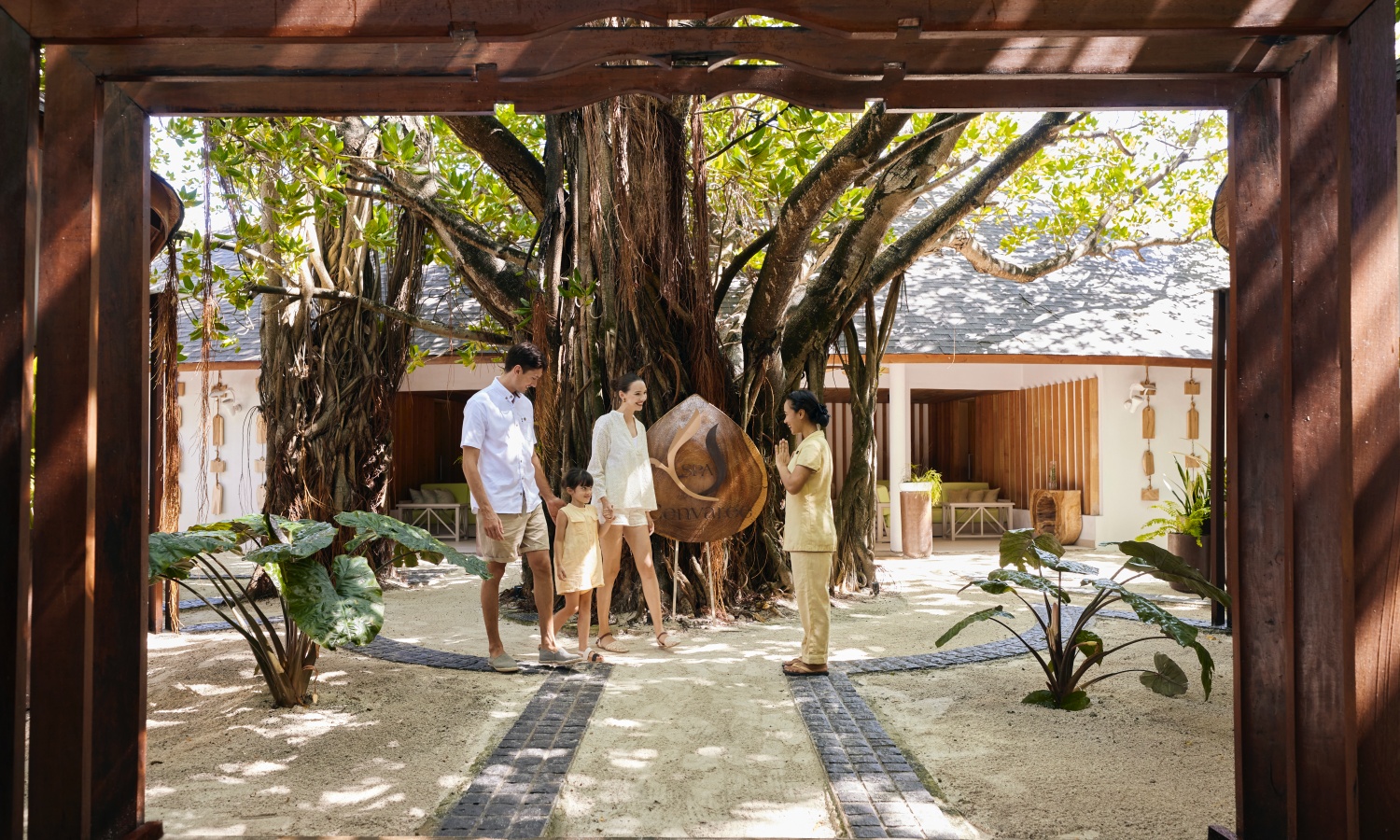
Machchafushi Island Resort & Spa, part of The Centara Collection, offers an island experience shaped by the rhythm of the ocean in the heart of South Ari Atoll. While the resort is widely recognised for its celebrated dive sites, award-winning house reef and rich marine life, another presence quietly anchors the spirit of the island.
Within the peaceful grounds of SPA Cenvaree stands a centuries-old banyan tree known locally as the Ummeedhu Tree, meaning Wish Fulfilment. With its expansive canopy and cascading aerial roots, the tree is regarded as more than a natural landmark. It is a symbol of continuity and reflection, standing as a silent witness to the island’s past and present.
Long before the island became a resort destination, the banyan tree stood rooted in the sands of Machchafushi. Today, the resort honours it as the spiritual heart of the island, inviting guests to pause beneath its branches and engage in moments of reflection and reconnection.
This connection is expressed through the Sacred Thread Ceremony, a contemplative ritual designed to offer guests a personal and meaningful experience. The ceremony begins with a quiet walk through the spa gardens, encouraging stillness and intention. Guests select a delicate golden leaf to represent a personal wish—whether for love, wellbeing, success, abundance or inner peace—and hold it alongside a wish card while visualising that intention fulfilled. The golden leaf is then tied to the banyan’s ancient branches, symbolising the offering of the wish to the tree’s enduring presence. The leaf remains there, carrying the quiet energy of the intention until the guest’s return.
Beyond the banyan, the island continues its natural rhythm. The surrounding waters form part of one of the Maldives’ most significant marine environments, known for year-round whale shark encounters and an extensive house reef that stretches beyond the shoreline. Yet amid the movement of the sea and the vibrancy of coral life, it is often the stillness beneath the banyan tree that leaves the most lasting impression.
Sustainability and heritage are integral to life on Machchafushi Island. Located within the South Ari Marine Protected Area, the island is committed to safeguarding both its marine ecosystems and its cultural identity. The banyan tree stands as a reminder that preservation extends beyond the natural environment to include traditions, stories and the deeper connections between people and place.
At Machchafushi Island Resort & Spa, each day unfolds with moments shaped by nature and intention. From golden sunrises over the lagoon to wishes entrusted to ancient branches, experiences on the island are designed not only to be remembered, but to take root.
Featured
City Iftar experience curated at JEN Maldives by Shangri-La

JEN Maldives by Shangri-La is welcoming the holy month of Ramadan with a series of Iftar evenings at Lime Restaurant, inviting guests to gather in the spirit of reflection, gratitude and togetherness.
Recognising Ramadan as a time that brings families, friends and communities closer, the hotel has curated an Iftar experience designed to go beyond dining. The focus is on creating a welcoming environment where traditions are observed, conversations unfold naturally and shared moments are celebrated around the table.
Located in the heart of Malé, Lime Restaurant provides a warm and contemporary setting suited to a range of gatherings, from colleagues reconnecting after work to families and friends breaking fast together. Each evening reflects the generosity associated with Ramadan, featuring carefully prepared dishes, live cooking stations and a selection of sweet treats that balance traditional flavours with creative touches.
Iftar at JEN Maldives by Shangri-La is shaped by attentive service and thoughtful hospitality. Guests are welcomed into an atmosphere that blends comfort with understated elegance, allowing space for reflection while enjoying a relaxed dining experience. The hotel’s culinary and service teams work closely to ensure consistency, quality and authenticity throughout the season.
Whether for intimate gatherings or larger group celebrations, the venue offers flexibility supported by a culinary programme rooted in care and attention to detail. The Ramadan offering is designed to ensure guests feel at ease while enjoying a distinctive Iftar experience in the capital.
Throughout the holy month, JEN Maldives by Shangri-La invites guests to come together at Lime Restaurant to experience evenings defined by flavour, generosity and meaningful connection, in keeping with the true spirit of Ramadan.
Drink
Provence comes to Maldives with Château Minuty dinner at Milaidhoo Maldives
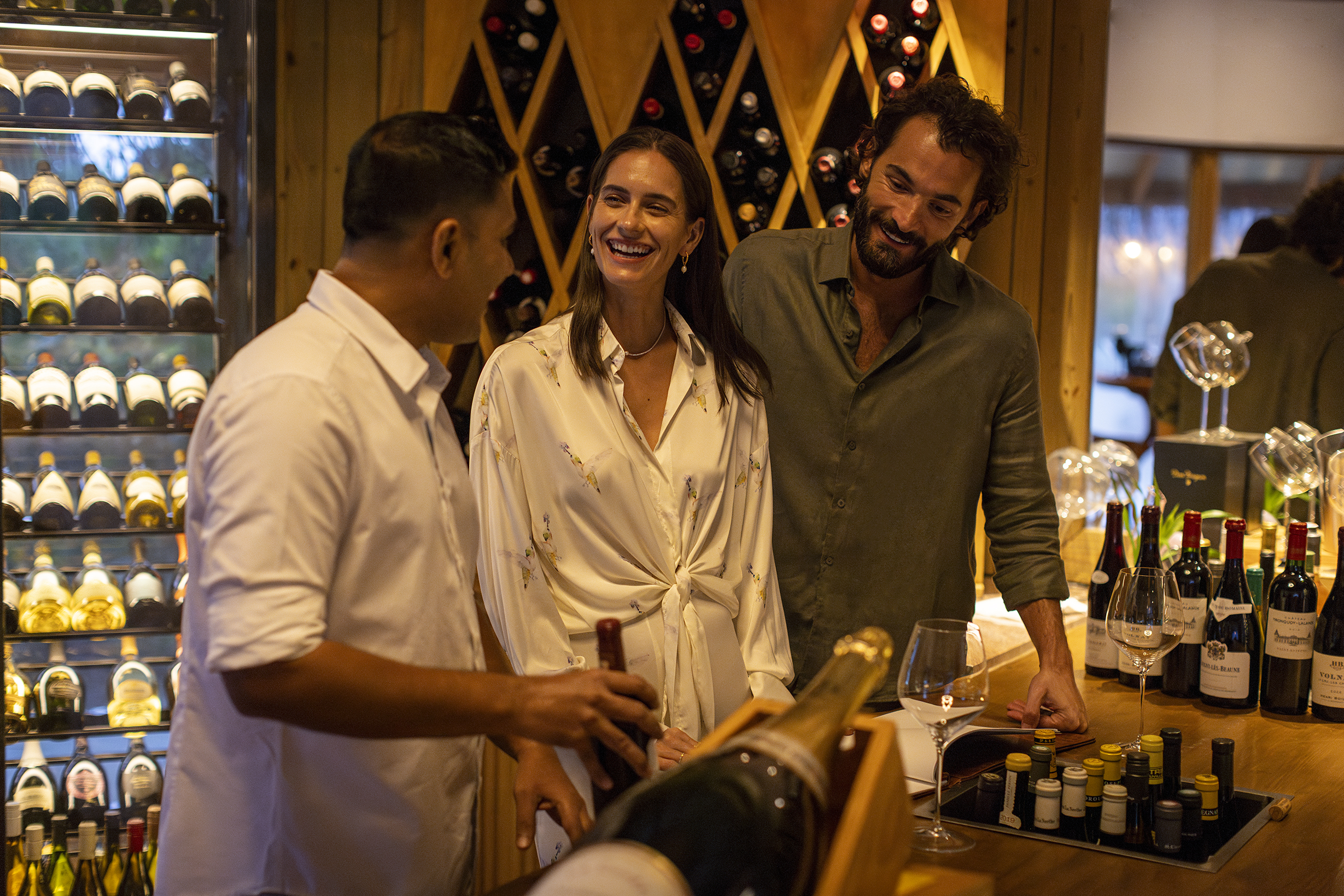
Milaidhoo Maldives is hosting a wine pairing dinner celebrating Provençal elegance and gastronomy on 4 March 2026 at the resort’s Shoreline Grill. The evening will feature wines from Château Minuty and will be hosted by Sébastien Nore, Global Strategy and Export Director of Château Minuty, offering guests insight into the winery’s heritage and approach to fine winemaking.
Originally from Limousin, France, Nore brings extensive experience in the international beverage industry. His career includes roles with Kronenbourg Wineries and PepsiCo France, followed by senior leadership positions at Diageo and Baron Philippe de Rothschild. He has played a key role in expanding Château Minuty’s global presence and currently oversees the winery’s strategy, sales, communication and marketing, with a focus on innovation and the refined character of Provençal rosé.
During the dinner, guests will enjoy a curated selection of Château Minuty wines, paired with a bespoke menu created by the Shoreline Grill culinary team. The featured wines include:
- Château Minuty M de Minuty Rosé Magnum 1.5L – Artist Edition 2024
- Château Minuty Prestige Rosé 2024
- Château Minuty Rosé et Or 2024
- Château Minuty 281 2024
Beyond this event, the dinner reflects Milaidhoo Maldives’ wider commitment to gastronomy. The resort’s Gourmet Plan is designed for guests with a strong interest in food and wine, offering personalised, multi-course dining experiences throughout their stay. Each menu is crafted to highlight the relationship between carefully selected ingredients and complementary wines, with an emphasis on authenticity and balance.
The Château Minuty dinner marks the fourth wine-focused event hosted by Milaidhoo Maldives this year, underscoring the resort’s ongoing focus on curated culinary experiences. The evening is positioned as a sensory journey, combining refined flavours, thoughtful pairings and a convivial island setting.
-

 Action1 week ago
Action1 week agoBestbuy Maldives supports health, wellness as Main Sponsor of MNU Marathon 2026
-

 Cooking1 week ago
Cooking1 week agoMaagiri Hotel invites guests to celebrate Ramadan with daily Iftar
-

 Awards1 week ago
Awards1 week agoEllaidhoo Maldives secures HolidayCheck Gold Award for second consecutive year
-
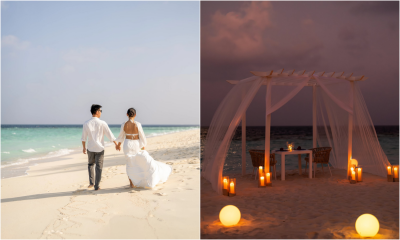
 Love1 week ago
Love1 week agoRomance in nature: Valentine’s week at Eri Maldives
-
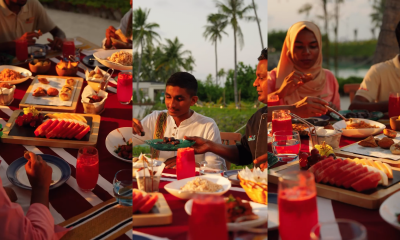
 Food1 week ago
Food1 week agoOBLU XPERIENCE Ailafushi invites guests to break fast island-style this Ramadan
-
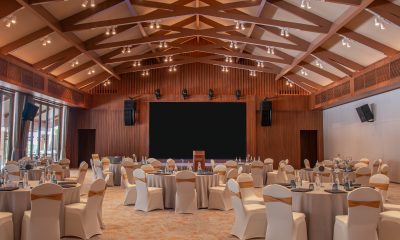
 Business5 days ago
Business5 days agoFeydhoo Hall opens at dusitD2 Feydhoo Maldives as new event space
-

 News5 days ago
News5 days agoVentive Hospitality aligns Maldives portfolio with Green Fins marine sustainability platform
-

 Awards1 week ago
Awards1 week agoReethi Faru Resort recognised with HolidayCheck Award 2026











